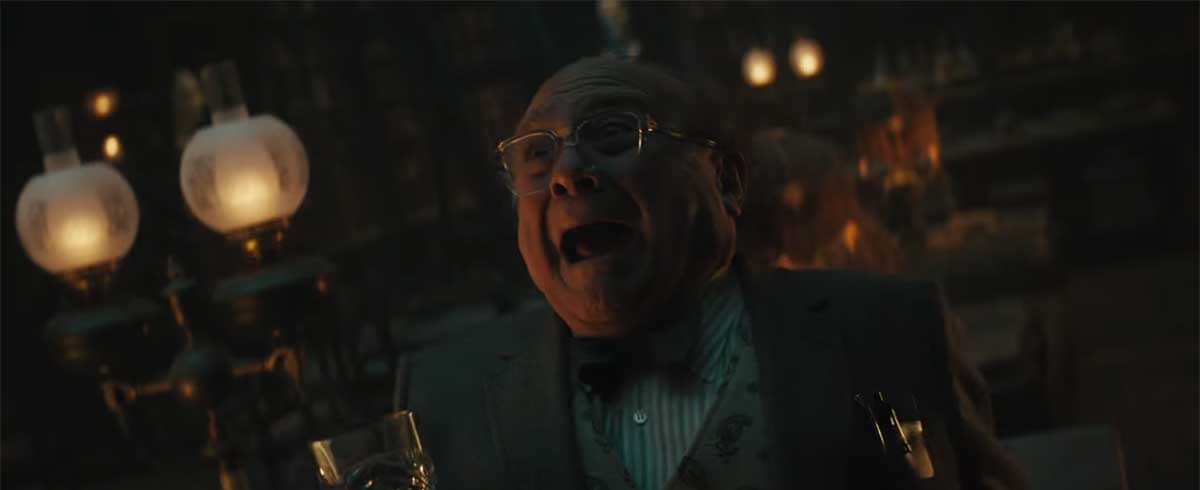Sometimes I miss themed programming blocks. They added a sense of character to some already excellent shows and helped put viewers in a certain frame of mind, especially for children’s shows. Jetix wasn’t one I watched much of when it was originally airing. I mostly just used it as background noise, but in the past few years, I’ve found several streams of the programming and enjoyed it more, as well as seen the passion some people had for the brand. Twenty years later, Jetix has made for an interesting bit of network nostalgia.
Jetix came about when Disney bought up Fox Family Worldwide, an acquisition that landed them The Family Channel as well as the libraries of Fox Kids and Saban Entertainment. This new wealth of programming was meant to increase their presence on the small screen and provide a needed upgrade to their children’s content on ABC Family and Toon Disney. The goal was to reach the popularity of Cartoon Network’s Toonami and provide some serious competition in the process.
They’d need a cool, catchy name: Jetix. It sounds cool, and energetic, like something that comes at viewers fast and with a lot of power. Many of the shows planned for these time slots were focused on action, adventures, and battles of good versus evil, so the name needed to help convey that. Jetix being a made-up word was beneficial, as it felt unique and there was no need to translate it into other languages, assuming it didn’t resemble an existing bad word. The higher-ups were happy because the name sounded great when the announcer voice said it and the word encouraged engagement with the target audience. The block was mainly focused on younger males, but also had programming that could potentially bring in the female demographic and older kids as well.
With a plethora of shows to choose from, Jetix had a solid mix of programming. It showed many cartoons from across multiple decades, and used several themed segments, giving the block a sense of variety. There was also a strong focus on Japanese animation, which was quite hot at the time. Many shows embraced Asian culture or attempted to resemble anime, and there was even a “Made in Japan-athon.” This was also the new home of Power Rangers, but not just the current series, as many old episodes were shown off with Power Rangers Generations.
Original programs were also made specifically for the block, produced by a new collaborative team featuring Jetix Europe N.V. and Walt Disney Television Animation called Jetix Animation Concepts. Those shows were Super Robot Monkey Team Hyperforce Go! (which is quite the mouthful), Get Ed, and Yin Yang Yo!, to complete their love of exclamation points. There were also other shows being co-produced in association with various companies that came from Europe, like W.I.T.C.H., The Tofus, Monster Warriors, Galactik Football, Pucca, Aban Star-Racers, and A.T.O.M., which were supposedly being produced in bulk and for cheaper, making them quite appealing to the network.
There were many other original series that Jetix didn’t help produce but premiered in the block, such as Dragon Booster, Battle B-Daman, Digimon Data Squad, and several Power Rangers seasons. Viewers also saw Disney Afternoon classics and reruns of recent Fox shows. I remember catching up on Gargoyles, Spider-Man Unlimited, and X-Men: Evolution around that time. Since Jetix had a presence across the world and was even a full channel in some regions, there were shows created specifically for those markets that were rarely aired on the U.S. stations, or not at all. In my research, I discovered one called PXG that I’ll definitely be checking out more later, but I think I’m good on LazyTown.
Jetix was considered highly successful, part of which is owed to marketing and outreach. Many of the programs the company brought in lent themselves well to merchandising, making the block highly profitable, even if a lot of these items were only available overseas. There were also video games, comics, magazines, a soccer tournament, an award show held in Europe, and even a monster truck to emphasize the raw strength of this branding.
Certain Markets also had Jetix Play — a channel that operated the same way, but was geared toward younger viewers and featured more shows from DiC Entertainment. Something that made the product feel new was Jetix Cards Live, where viewers could register for the website and play a card game that allowed them to interact with the television and internet in real time. Users with high enough scores would see their names come up each week during the block. It was a design choice that made viewers feel like they were truly participating in something awesome.
The avatar used for Jetix felt like a smart design as well. Some call it “The Jetix Cat,” but it was commonly referred to simply as “J.” The spherical entity with an X behind it moved as if those were its appendages, and the single eye made it seem shy but playful. The metallic color moved well against the blue-tinted city viewers watched it zoom around, featuring eye-catching visuals as the mascot constantly changed shape. The promos were energetic and enjoyable without taking up too much time.
All good things must come to an end, however, and even though the block had expanded, taking up much of the Toon Disney channel with its success, Jetix would be replaced by Disney XD in February of 2009, almost exactly five years after its launch in the U.S., missing it by one day. Though it wasn’t as successful for the ABC Family channel, Disney had seen an increase in viewership, but now they wanted to refocus again with an even stronger attempt at targeting younger male viewers (and would again draw in more girls as well). The brand was arguably bigger internationally, especially in India and Russia, so many of those Jetix channels stuck around for much longer in certain territories, keeping the legacy alive.
Not everyone was a fan of the block, either because they preferred Toonami (some definite tribalism there) or felt that this new line of programming pushed out many of their Toon Disney favorites while allowing in too much live-action. This conversation usually brings up several arguments online, especially whether or not Disney should have stuck to their classic content more and if new shows are needed for consistent solid programming.
Fans have attempted to bring Jetix back online, but some fans are quick to point out that most of the cartoons made specifically by the company weren’t the standouts and that the branding itself was more memorable than many of the shows. Not all of the programs are available on Disney+, but this could be due to rights issues or simply a lack of interest in the former brand from executives. For many who were there though, the nostalgia of watching this action-packed block aimed at them is still strong and reminds us of when shows had a little more help standing out.















































































